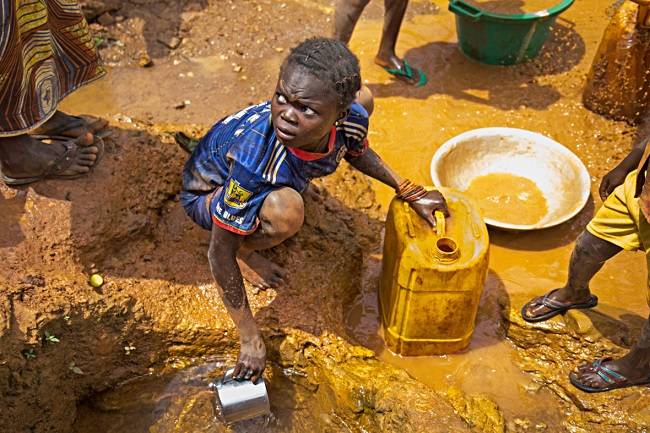Ghana, despite its progress in several areas, remains classified as a developing country due to a combination of historical, economic, and structural factors that limit its ability to achieve sustainable and broad-based development. Here are some of the key reasons:
1. Historical Context: Like many African countries, Ghana’s colonial history has left with economic and social structures that were geared towards serving the interests of colonial powers rather than fostering independent, diversified development. Post-independence, the country faced challenges in building a self-sustaining economy.
2. Dependence on a Few Commodities: Ghana's economy remains highly dependent on the export of a few commodities, such as cocoa, gold, and oil. This dependence exposes the country to fluctuations in global commodity prices, limiting its ability to generate stable revenue and achieve economic diversification.
3. High Poverty rate : While there has been progress in reducing poverty, a significant portion of the population still lives below the poverty line. Income inequality is also a challenge, with wealth concentrated in urban areas and the southern part of the country, while rural areas face significant developmental gaps.
4. Lack of Infrastructure: Ghana continues to face challenges with infrastructure, including transportation, energy, and healthcare. While there have been improvements, inadequate infrastructure hampers business growth, foreign investment, and access to services, particularly in rural areas.
5. Political Instability and Governance Issues: Although Ghana is considered one of Africa's more stable democracies, political instability and challenges with governance, corruption, and policy continuity have occasionally hindered development. Ineffective or inconsistent implementation of policies can slow economic growth and deter investment.
6. Education and Human Capital Development: While there have been efforts to expand access to education, the quality of education and skills development remain challenges. A large portion of the population is still employed in low-productivity sectors like agriculture, and there's a need for a workforce with skills suited to a modern, diversified economy.
7. Debt Burden: Ghana has faced periods of heavy public debt, which can constrain the government's ability to invest in development priorities. Debt servicing takes up a large portion of national resources, leaving less room for infrastructure, social programs, and other critical investments.
8. Global Economic Factors: As a small economy in a globalized world, Ghana is affected by international trends such as fluctuating oil prices, foreign exchange volatility, and global financial crises. These external factors can disrupt growth and affect key sectors like trade, investment, and tourism.
9. Climate Change and Environmental Challenges: Ghana's agriculture sector is highly vulnerable to climate change, which affects crop yields and livelihoods, particularly in rural areas. Environmental degradation, deforestation, and poor land management practices are also contributing factors to its slow development.
Despite these challenges, Ghana has made significant strides in sectors like democratic governance, education, and infrastructure, and it continues to attract foreign investment and develop its industrial and technological base. The path to becoming a developed country will require addressing these systemic issues while also capitalizing on the opportunities of its growing young population and natural resources.


